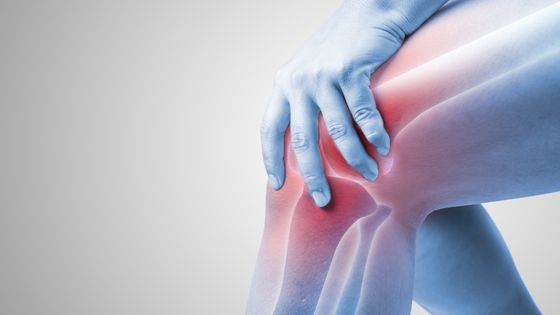Chronic joint pain is a common problem and can affect people of all ages. It can be difficult to manage and treat, but there are ways to lessen the pain. The following tips may help you manage your chronic joint pain:



1. Get Moving
Exercising is a key component of chronic joint pain management and can significantly help prevent chronic joint pain altogether. With increased levels of physical activity comes increased circulation to the joints, which helps to decrease inflammation, ease stiffness, and reduce pain. It’s also important to note that a regular exercise routine will make you stronger overall—which is helpful for your joints because it means you’ll have more muscle supporting your body as it moves.
The most important thing here is to keep it easy to manage. If you’ve been sedentary for a long time, start small. An easy walk around the block or the neighborhood or a slow jog on the treadmill are great ways to get movement into your life again, even if it seems like you’re not doing much. These little steps add up over time, so be patient! Incline the treadmill and slow down your pace as needed while you gradually build up your endurance and ability to withstand more strenuous activity.
Exercise can reduce pain symptoms by increasing blood flow through the affected areas while also decreasing inflammation by removing harmful waste products from injured tissues and stimulating muscle contractions around joints which can increase joint flexibility.
2. Eat Foods Rich in Omega-3 Fatty Acids
There are many ways to help alleviate chronic joint pain, but one of the easiest is eating foods rich in omega-3 fatty acids. Omega-3 fatty acids are known for helping with heart health and improving mood, and as it turns out, they’re good for your joints, too. Omega-3s can help lubricate your joints, which can help with joint pain and stiffness. They can also keep your immune system working at top capacity, so you don’t suffer from the pain of inflammation due to conditions such as rheumatoid arthritis. Fish oils are one of the best sources of omega-3s, but fish oil supplements are an option if you don’t eat a lot of fish or would rather avoid certain types that might give you an allergic reaction.
3. Get Enough Sleep Every Night
Sleeping is a precious commodity for those who suffer from chronic joint pain. Even when you’re in a good amount of pain, getting enough sleep can be hard to picture. But as any chronic pain sufferer will tell you, sleep is vital in managing your pain. First, your body needs to rest and replenish itself—it takes around 8 hours for your brain and body to produce new cells, which are the building blocks of your body and mind.
So if you’re not getting enough shut-eye, you’re effectively slowing down your natural healing process. Second, sleeping can help reduce the mental impact of chronic pain by relieving stress, clearing your mind, and easing anxiety. And finally, many people make the mistake of trying to “sleep off” their aches and pains instead of working through them while they’re under the covers—but sleep helps muscles relax and allows them to recover more quickly from physical activity. Make sure you get enough quality shut-eye every night to be well-rested for a full day’s activities!
4. Get Medications
It may feel like you’re out of options, but some powerful medications can help. In the past, opioid drugs were used as a first-line treatment for chronic pain, but they were proven to be addictive in high doses and to come with a strong risk of overdose. While you should always follow your doctor’s advice on what medication is right for you, it is possible to acquire pain management without risking dependency or addiction to over-the-counter and prescription-strength drugs.
5. Consider Supplements That Support Joint Health
Several nutrients can help to decrease chronic joint pain and improve the health of your joints. The three most common supplements recommended for joint-related issues are glucosamine, chondroitin, and MSM. These three nutrients are naturally found in healthy cartilage and synovial fluid, which lubricate and nourish the joints. These nutrients have unique properties that support healthy joints.
When it comes to joint pain, several different types of conditions can cause it. Although some joint pain is easily treated and goes away independently, other types require more advanced treatments. Seek medical advice if your joint pain is particularly severe or lasts longer than two or three weeks.






















